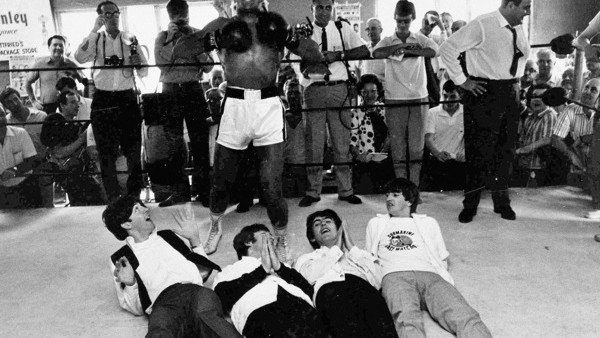10 Reasons Why Muhammad Ali Really Was The Greatest
9. It's Not Bragging If You Can Back It Up

Soon after his triumphant return to the U.S., Clay made his debut as a professional, taking on Tunney Hunsaker in his hometown of Louisville and dazzling his way to a six-round decision.
Clay’s innate speed and athleticism were apparent for all to see, but his style of fighting was a far cry from what was expected of professional boxers. Hands often slung low, chin exposed, and reliant on his exceptional reflexes to keep him out of harm’s way, Clay was always different.
Archie Moore, a former light-heavyweight champion and legend in his own right, was hired as his trainer but was unable to impose either his will or traditional boxing fundamentals on the unorthodox young upstart. He was soon replaced by Angelo Dundee, who stayed in Clay’s corner for the rest of his professional career.
Aged nineteen, Clay encountered a professional wrestler by the name of Gorgeous George and was struck by his braggadocio and self-promotion. Clay immediately incorporated showmanship into his own routine, giving his opponents nicknames, writing rhymes and predicting – often correctly – the round in which he would end his fights. For a black athlete in 1960s America, such antics were at best ‘uppity’, at worst downright inflammatory.
After quickly amassing 19 wins as a professional, Clay was ready to challenge for the heavyweight championship, but the boxing press, though often amused by Clay’s bizarre antics (and often not), didn’t give him a prayer. With good reason.